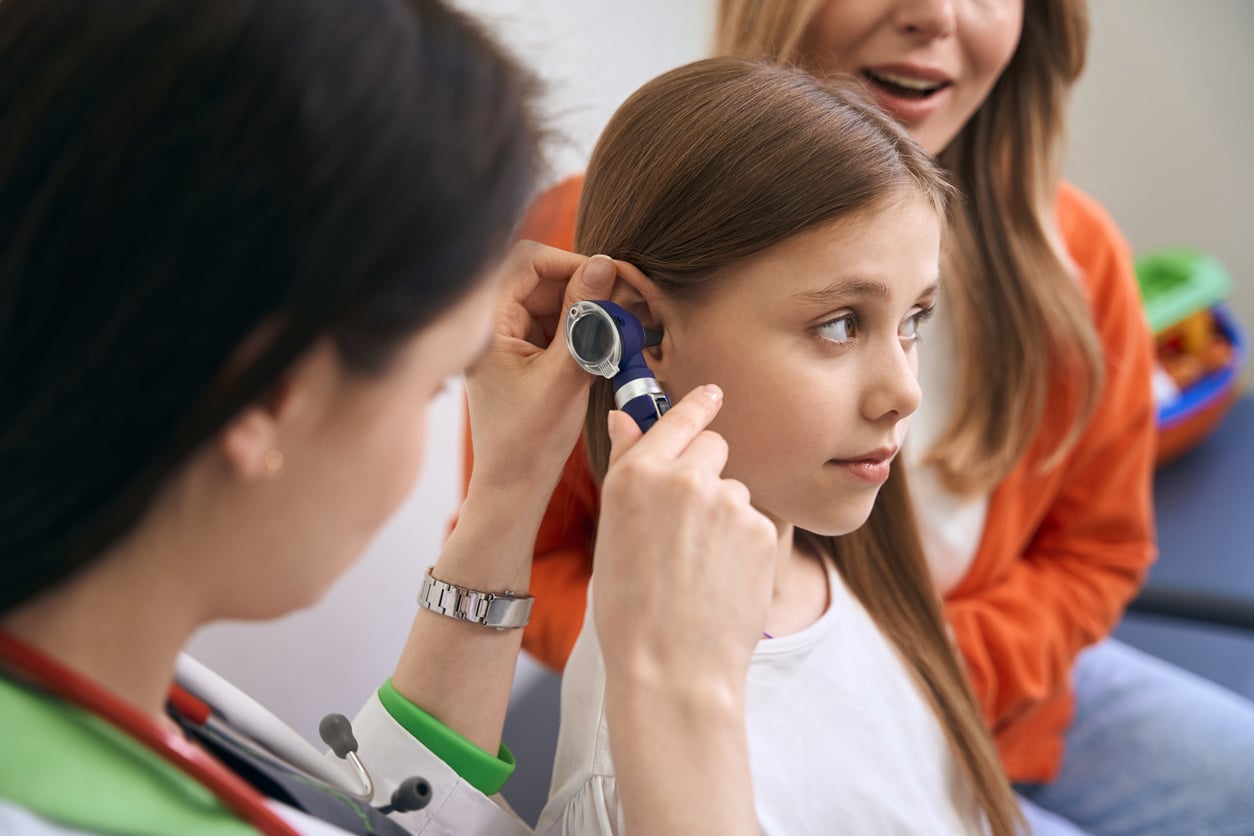Pediatric hearing issues encompass a wide range of conditions affecting a child’s hearing and communication ability. Common pediatric hearing issues include auditory processing disorder and hearing loss. Let’s delve into each condition and how you can best support your child in their treatment plans.
What Is Auditory Processing Disorder (APD)?

Approximately one to two per 1,000 children have ADP. With APD, your child will not have trouble hearing but rather understanding certain sounds. Four areas where a child with APD may struggle include:
- Auditory discriminations—understanding or noticing small differences between words.
- Auditory figure-ground discrimination—understanding or picking out specific words in loud or noisy environments.
- Auditory memory—the ability to recall what was said.
- Auditory sequencing—understanding and recalling word order.
In addition to these four areas, a few symptoms of APD you may notice in your child include:
- Frequently asking others to repeat what they’ve said
- Trouble understanding rapid speech
- Not responding when spoken to
- Trouble following spoken directions
- Trouble following along in long conversations
While an APD has no cure, you can help your child process and manage their condition by making them an appointment for specialized speech therapy to develop auditory skills, coping strategies and more. In addition to seeking professional help, try keeping auditory distractions at home to a minimum and practice patience if your child has trouble listening or understanding.
What Is Hearing Loss?
Approximately 14.9% of children ages six to 19 have hearing loss of at least sixteen decibels in one or both ears. Hearing loss shares symptoms similar to APD, but the issue lies in the ability of the ears to hear. Pediatric hearing loss may be caused by one or more of the following factors:
- Genetics
- Prenatal infections (such as cytomegalovirus or rubella)
- Complications at birth
- Exposure to certain medications or toxins
- Chronic ear infections
- Head trauma
- Prolonged exposure to loud noises
Hearing loss in children can significantly impact speech and language development, academic performance and social interactions. Early intervention is crucial to minimize the impact of hearing loss on a child’s development.
The treatment for pediatric hearing loss depends on the type and severity of the loss. Options may include hearing aids, cochlear implants for severe to profound hearing loss, speech therapy, school services and family support.
Hearing that your child has APD or hearing loss can be a little scary, but with early identification and help from a qualified specialist, you can feel confident that they are getting the care they need. Contact Eastern Oklahoma Ear Nose and Throat – Yale Office today to make an appointment with one of our specialists for treatment.